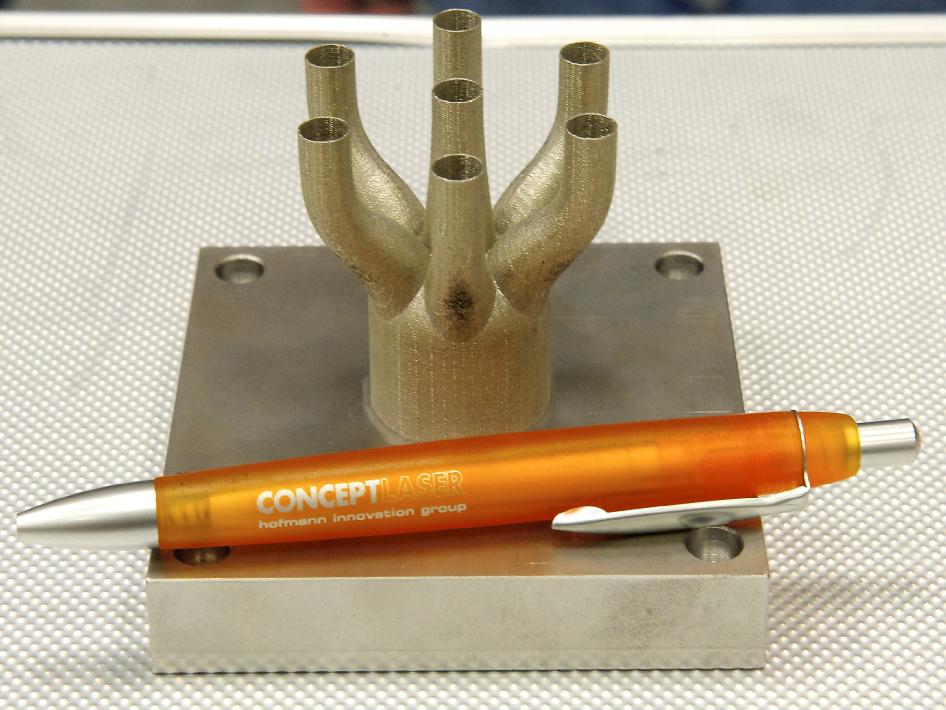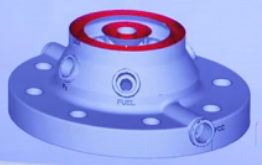3D-printed rocket parts
November 11, 2012

First test piece produced on the M2 Cusing Machine at the Marshall Center (credit: NASA/MSFC/Andy Hardin)
NASA’s Marshall Space Flight Center is using “selective laser melting” (SLM) to create intricate metal parts for America’s Space Launch System (SLS) heavy-lift rocket, saving millions in manufacturing costs.
SLM is similar to 3-D printing (additive printing) and is the future of manufacturing, says Ken Cooper, advanced manufacturing team lead at the Marshall Center.
“This machine takes metal powder and uses a high-energy laser to melt it in a designed pattern. The laser will layer the melted dust to fuse whatever part we need from the ground up, creating intricate designs.

Building complex shapes with SLM process (credit: NASA/MSFC/Andy Hardin)
“The process produces parts with complex geometries and precise mechanical properties from a three-dimensional computer-aided design.”
Benefits:
- Significantly reduces the manufacturing time required to produce parts from months to weeks, or even days in some cases.
- Replaces welding, so the parts are structurally stronger and more reliable, and thus safer.
SLS is designed to take humans, equipment and experiments beyond low Earth orbit to nearby asteroids and eventually to Mars.